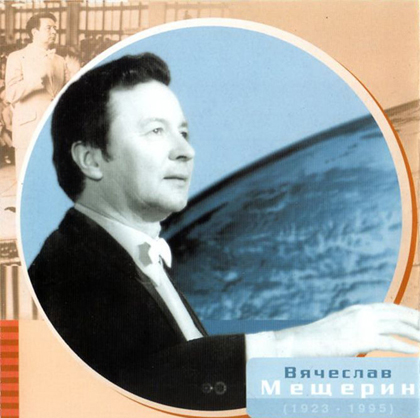The hidden meanings of Destined to be Happy exhibition - The Interview with Irina Korina
10 January 2017 | By
09 January 2017 | By
Inside the Picture: Installation Art in Three Acts - by Jane A. Sharp
19 November 2016 | By
Conversations with Andrei Monastyrski - by Sabine Hänsgen
17 November 2016 | By
Thinking Pictures | Introduction - by Jane A. Sharp
15 November 2016 | By
31 October 2016 | By
Tatlin and his objects - by James McLean
02 August 2016 | By
Housing, interior design and the Soviet woman during the Khrushchev era - by Jemimah Hudson
02 August 2016 | By
Dressing the Soviet Woman Part 3: "Are Russians Women?" Vogue on Soviet Vanity - by Waleria Dorogova
18 May 2016 | By
Dressing the Soviet Woman Part 1 - by Waleria Dorogova
13 May 2016 | By
Eisenstein's Circle: Interview With Artist Alisa Oleva
31 March 2016 | By
Mescherin and his Elektronik Orchestra - by James McLean
13 January 2016 | By
SSEES Centenary Film Festival Opening Night - A review by Georgina Saunders
27 October 2015 | By
Nijinsky's Jeux by Olivia Bašić
28 July 2015 | By
Learning the theremin by Ortino
06 July 2015 | By
Impressions of Post- Soviet Warsaw by Harriet Halsey
05 May 2015 | By
Facing the Monument: Facing the Future
11 March 2015 | By Bazarov
'Bolt' and the problem of Soviet ballet, 1931
16 February 2015 | By Ivan Sollertinsky
Some Thoughts on the Ballets Russes Abroad
16 December 2014 | By Isabel Stockholm
Last Orders for the Grand Duchy
11 December 2014 | By Bazarov
Rozanova and Malevich – Racing Towards Abstraction?
15 October 2014 | By Mollie Arbuthnot
Cold War Curios: Chasing Down Classics of Soviet Design
25 September 2014 | By
Walter Spies, Moscow 1895 – Indonesia 1942
13 August 2014 | By Bazarov
'Lenin is a Mushroom' and Other Spoofs from the Late Soviet Era
07 August 2014 | By Eugenia Ellanskaya
From Canvas to Fabric: Liubov Popova and Sonia Delaunay
29 July 2014 | By Alex Chiriac
My Communist Childhood: Growing up in Soviet Romania
21 July 2014 | By Alex Chiriac
Monumental Misconceptions: The Artist as Liberator of Forgotten Art
12 May 2014 | By Rachel Hajek
28 April 2014 | By Rachel Hajek
An Orgy Becomes a Brawl: Chagall's Illustrations for Gogol's Dead Souls
14 April 2014 | By Josephine Roulet
KINO/FILM | Stone Lithography Demonstration at the London Print Studio
08 April 2014 | By Alex Chiriac
24 March 2014 | By Renée-Claude Landry
Book review | A Mysterious Accord: 65 Maximiliana, or the Illegal Practice of Astronomy
19 March 2014 | By Rosie Rockel
Leading Ladies: Laura Knight and the Ballets Russes
10 March 2014 | By Bazarov
Exhibition Review | Cash flow: The Russian Pavilion at the 2013 Venice Biennale
03 March 2014 | By Rosie Rockel
24 February 2014 | By Ellie Pavey
Guest Blog | Pulsating Crystals
17 February 2014 | By Robert Chandler Chandler
Theatre Review | Portrait as Presence in Fortune’s Fool (1848) by Ivan Turgenev
10 February 2014 | By Bazarov
03 February 2014 | By Paul Rennie
Amazons in Australia – Unravelling Space and Place Down-Under
27 January 2014 | By Bazarov
Exhibition Review | Siberia and the East, fire and ice. A synthesis of the indigenous and the exotic
11 December 2013 | By Nina Lobanov-Rostovsky
Shostakovich: A Russian Composer?
05 December 2013 | By Bazarov
Marianne von Werefkin: Western Art – Russian Soul
05 November 2013 | By Bazarov
Chagall Self-portraits at the Musée Chagall, Nice/St Paul-de-Vence
28 September 2013 | By Bazarov
31 July 2013 | By Richard Barling
Exhibition review | Lissitsky — Kabakov: Utopia and Reality
25 April 2013 | By Richard Barling
Exhibition review | Ilya and Emilia Kabakov: The Happiest Man
18 April 2013 | By Richard Barling
13 January 2016 | By

With its twinkling synths, soaring theremins and surprisingly funky basslines there is nothing quite like the Soviet lounge music of Vyacheslav Mescherin and his Elektronik Orchestra. The first time I heard these bizarre and ethereal sounds I confess I burst out laughing. There is something so intrinsically silly about their their seemingly faux-earnest swagger. And yet the music is wildly addictive.
The life and times of Vyacheslav Valerianovich Mescherin are shrouded in mystery, few concrete facts penetrate the miasma of doubt and confusion conjured in the Soviet era. We know that he fought for the Soviet Union in the Second World War and received the Order of the Red Star ‘for courage’, presumably for reasons of war rather than the composing of a kind of proto-muzak.
We know that a young Vyacheslav put his warring days behind him by enrolling at Gnessin State Musical College before working in public radio broadcasting. The details are especially hazy at this point so let’s fast-forward to 1957 when Mescherin founded the orchestra that would bear his name, the (ahem…) Vyacheslav Mescherin Orchestra. Despite its conventionally dull name this was from its outset no ordinary orchestra. Armed with a plurality of electronic instruments including accordions, violins and mandolins to be played alongside Russian synthesisers and the mighty theremin (only the drums were acoustic), the orchestra scored an immediate hit with a futuristic adaptation of an Estonian folk song ‘On the Kolkhoz Poulty Farm’. The song was soon adopted as the theme tune for the popular 1970s Soviet children’s cartoon ‘The Wolf and the Hare’. To this day if you hum its wobbly tune in the company of any Russians over the age of 40 you’re likely to be greeted with a chorus of nostalgic chirruping.
https://www.youtube.com/watch?v=iaWaChZ3PfA

Vintage pin badge for the popular Soviet Children’s cartoon ‘The Wolf and the Hare’
Soon the music of the Mescherin orchestra would be heard blearing out everywhere from armaments factories in Perm to the concert halls of Moscow. The orchestra had a penchant for playing zany and downright bizzare venues including gigs at a nuclear power station and a salt mine in Divnogorsk. But the music of the Mescherin orchestra, in truth, was not for this world.
The Kremlin charged Mescherin with the task of composing futuristic music fit for the cosmos they intended to explore. With the Soviet space programme in full swing, the orchestra recorded an avant-garde version of the Communist anthem ‘The Internationale’ which Aleksei Leonov listened to frequently on the mission during which he would perform the first spacewalk. Leonov, a dear friend of Mescherin, remarked many years that his music perfectly encapsulated the sense of weightlessly floating around a space station and marvelling at the enveloping cosmos.
Eventually Mescherin and his Orchestra were discarded as just too antiquated and just too Soviet by a new generation of Russian teenagers who got their rocks off to the sounds of the Beatles and the Rolling Stones by illegally tuning in on their long wave radios to foreign shows like Seva Novgorodsev’s ‘Crop Circle’ on the BBC Russian Service. Mescherin’s achievements were utterly forgotten until the fad for retromania swept Moscow in the 90s and some keen archivists uncovered the the story this pioneer musical genius, later compiling the iconic Mescherin compilation ‘Easy USSR’ volumes 1 and 2. Mescherin himself used to stay up all night composing his music. I say stick this one on at midnight, turn it up loud and take a look at the stars…
https://www.youtube.com/watch?v=2ODwJW0CHa8


